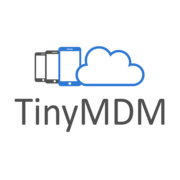
Best Kiosk Software 2026
What is Kiosk Software? Kiosk software is designed to enable organizations across various industries to effectively manage and control self-service kiosks. These kiosks are typically interactive digital devices that allow users, both employees and customers, to access information, complete transactions, or perform specific tasks without the need for assistance from staff members. This type of software is used by a wide range of industries including retail stores, hospitality businesses, ...
We’ve collected videos, features, and capabilities below. Take me there.
All Products
Learn More about Kiosk Software
What is Kiosk Software?
Kiosk software is designed to enable organizations across various industries to effectively manage and control self-service kiosks. These kiosks are typically interactive digital devices that allow users, both employees and customers, to access information, complete transactions, or perform specific tasks without the need for assistance from staff members.
This type of software is used by a wide range of industries including retail stores, hospitality businesses, healthcare facilities, government agencies, libraries, educational institutions, transportation hubs (e.g., airports), and many more. The primary goal of implementing kiosk software is to enhance customer experience by providing easily accessible self-service options while also improving operational efficiency for the organization.
Kiosk software shares similarities with point-of-sale (POS) systems, as they often integrate with payment gateways and provide transaction processing capabilities. POS systems are primarily focused on sales transactions at checkout counters or cashier desks, while kiosk software provides additional features such as multimedia touchscreen experiences.
Kiosk software is sometimes confused with Digital Signage, which displays advertising or informational content on electronic screens. While this software has become increasingly interactive, kiosk software provides a much wider variety of personalization and use cases, with a greater degree of user involvement when it comes to transactions and task execution.
Kiosk Software Features
The following are some key features commonly found in kiosk software:
- User Interface Customization: Allows organizations to easily create customized interfaces according to their branding guidelines and tailor them based on specific use cases.
- Content Management System (CMS): Enables creation and management of multimedia content like images, videos, slideshows that can be displayed on the touchscreen interface.
- Security and Access Control: Provides robust security measures such as user authentication methods (e.g., passwords or biometrics), session timeouts, and encryption protocols ensuring sensitive data remains secure.
- Remote Monitoring & Management: Offers centralized administration capabilities allowing IT teams or managers to monitor multiple kiosks remotely, schedule updates/patches/maintenance activities, and troubleshoot issues.
- Reporting & Analytics: Provides access to detailed reports and analytics on kiosk usage, helping organizations gain valuable insights into user behavior and trends for optimization purposes.
- Integration with External Systems: Offers integration capabilities with various external systems such as payment gateways, CRM or ERP software, inventory management systems, loyalty programs, etc.
Kiosk Software Comparison
When considering the purchase of kiosk software, potential buyers should take note of the following:
- User-Friendliness: Look for a solution that provides a simple, intuitive interface both for end-users interacting with the kiosks and administrators managing the software.
- Scalability: Ensure that the software can scale up easily as your organization's needs grow in terms of number of kiosks deployed or functionalities required.
- Customization Options: Determine if the software offers enough flexibility to match your organization's branding guidelines while being able to cater to specific use cases.
- Integration Capabilities: Check if the solution supports integration with other existing systems such as POS, CRM, payment processors or loyalty programs to ensure smooth data flow across different platforms without manual interventions.
Pricing Information
Starting prices for kiosk software vary depending on the size/scale of deployment. Lower-tiered plans can start from $20 to $200 per month, with extra costs for more devices that decrease (per device) as you scale up. Total costs can rise into the thousands or higher. A majority of vendors also offer custom quotes based on customer needs, which include monthly subscriptions (per device/user) to installation fees and upfront annual license fees. Discounts for annual plans are common. Physical self-service kiosks may cost between $1,000 and $5,000 depending on size and format.
Companies may provide tiered pricing plans based on functionality levels, target market sizing (SMBs vs. large enterprises), or additional services bundled. Factors like the number of kiosks to be managed, desired integrations, and level of customer support required will also impact pricing. Additionally, some software providers offer implementation services, lifecycle management tools, and ongoing maintenance for an additional fee.






















